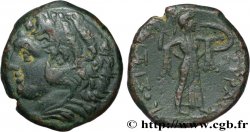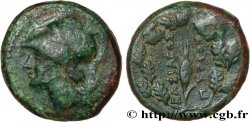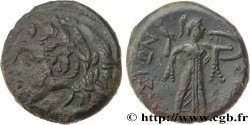bgr_483952 - SICILY - SYRACUSE Hemilitron
Quantity
Add to your cart

Type : Hemilitron
Date: c. 278-276 AC.
Mint name / Town : Syracuse, Sicile
Metal : bronze
Diameter : 19 mm
Orientation dies : 12 h.
Weight : 6,88 g.
Rarity : R2
Coments on the condition:
Exemplaire sur un flan épais quadrangulaire. Très belle tête d’Athéna. Revers légèrement décentré de haut relief. Belle patine marron foncé
Catalogue references :
Predigree :
Cet exemplaire provient du stock d’Hubert Lanz et de la collection Laurent F
Obverse
Obverse legend : ANÉPIGRAPHE.
Obverse description : Tête casquée d’Athéna à gauche, coiffée du caque corinthien à triple aigrette ; derrière une petite chouette.
Reverse
Reverse legend : ANÉPIGRAPHE.
Reverse description : Un épi de blé dans une couronne de chêne.
Commentary
Poids très lourd. Ce type est une très rare variante sans le titre de Pyrrhus. Le droit est inspiré par le statère d’or du monarque épirote. Il est beaucoup plus rare que ne le laissent supposer les ouvrages généraux.







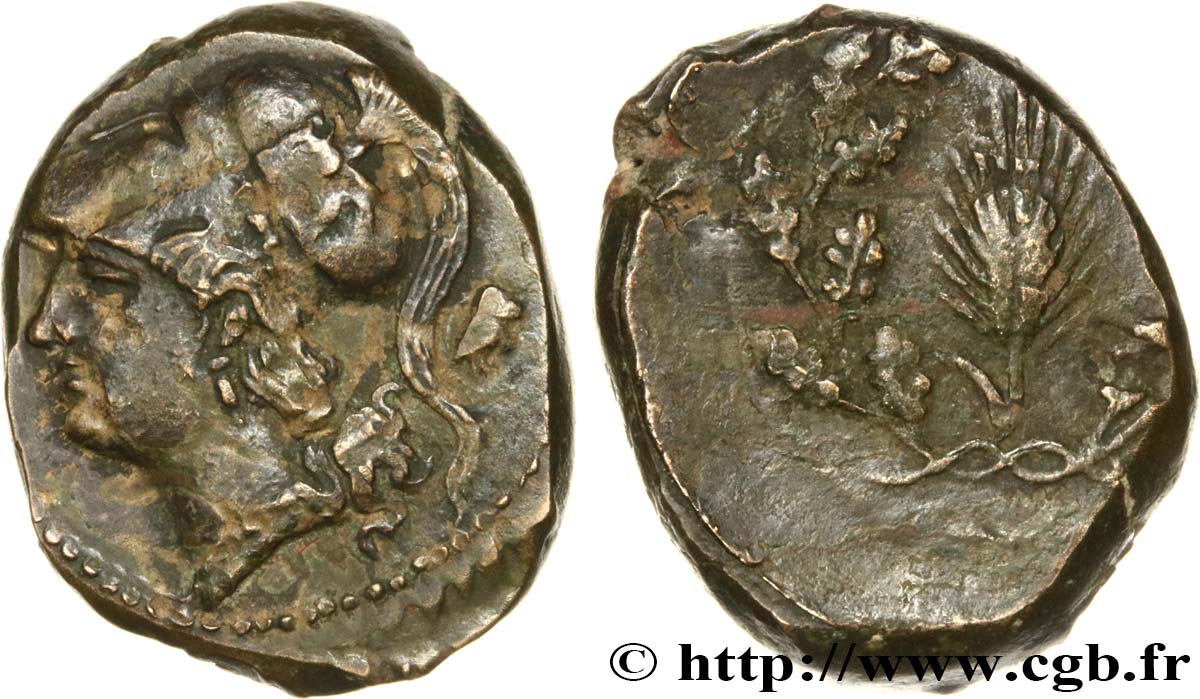
 Report a mistake
Report a mistake Print the page
Print the page Share my selection
Share my selection Ask a question
Ask a question Consign / sell
Consign / sell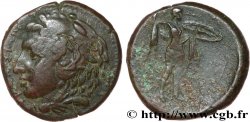
 Full data
Full data
